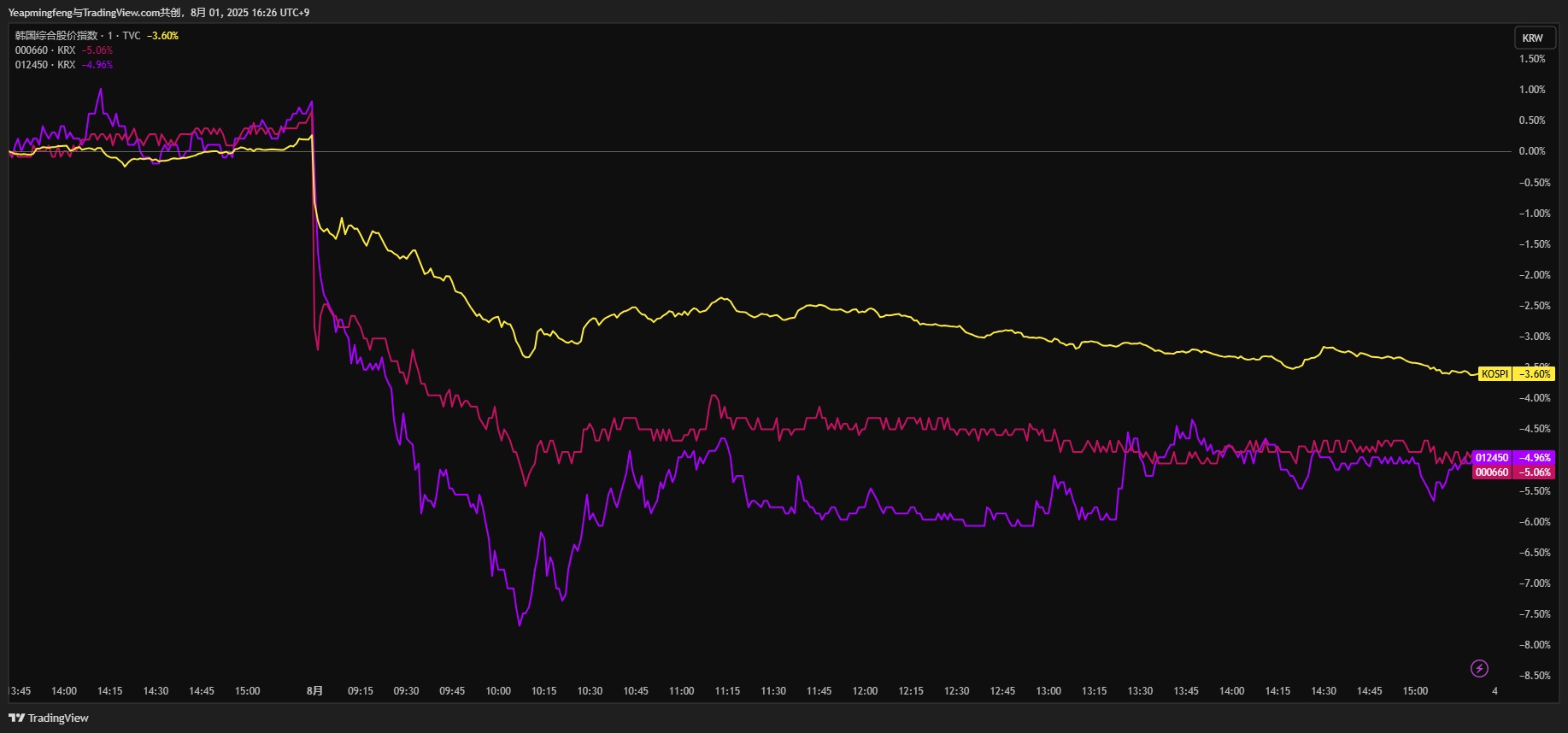South Korea’s KOSPI Tumbles Nearly 4% as Tax Hike Plans and US Tariffs Loom

TradingKey - South Korea's KOSPI index dropped over 3% at Friday's opening, marking the biggest decline since early April. This fall is attributed to the South Korean government unveiling a tax reform proposal on Thursday to increase corporate tax rates and securities transaction taxes, compounded by the impact of impending reciprocal US tariffs.
The proposal aims to adjust the corporate tax structure from the current four-tier system of 9% to 24% to a new range of 10% to 25%. Additionally, the securities transaction tax will be raised from 0.15% to 0.2%, and the threshold for capital gains tax on stocks will decrease from 5 billion won to 1 billion won.
This move is part of the government's efforts to counteract declining national revenues amid an economic slowdown. The government anticipates that this reform will increase the annual tax burden on households and businesses by 8.2 trillion won over the next five years, marking the largest hike in recent years.
However, many industry experts have voiced objections. Park Hun, a tax professor at Seoul National University, cautioned that hiking corporate taxes would only exacerbate the burden on Korean businesses, which are already under pressure from trade tariffs.
Economists warn that the proposed tax increases could negatively affect the Korean stock market, potentially hindering President Lee Jae-myung's promise of reaching the 5,000-point benchmark.
Namho Kim, general manager of Seoul's Timefolio Asset Management, explained that lowering the threshold will significantly increase the number of taxable investors, raising concerns of a surge in sell-offs. Additionally, major shareholders may dump shares at year-end to avoid taxes, potentially triggering a market shock and leading to undervaluation of stocks for an extended period.
Inha University economics professor Shin Il-soon highlighted further risks, noting that individual investors are more vulnerable to market instability than major shareholders. It is estimated that 14.1 million retail investors could exit the market. According to 2024 data from the Korea Securities Depository, the government collects approximately 6.6 trillion won annually in securities transaction taxes, with 75% coming from retail investors. The exit of small investors could therefore reduce the tax base.
The market reacted pessimistically to the proposal's announcement, with widespread declines in Korean stocks. By the close, SK Hynix fell 5.67% and Hanwha Aerospace dropped 5.72%, both exerting significant downward pressure on the KOSPI index, which ended 3.88% lower.

Korean stock market, source: TradingView
Given the ruling party's majority in parliament, the proposal is expected to pass smoothly, potentially deepening the pessimism among Korean stock investors.







